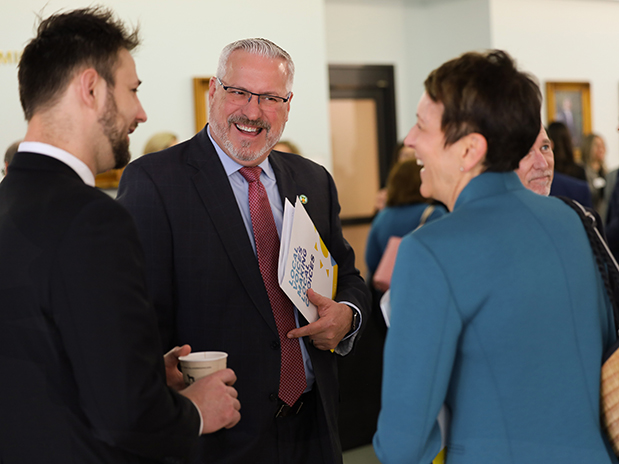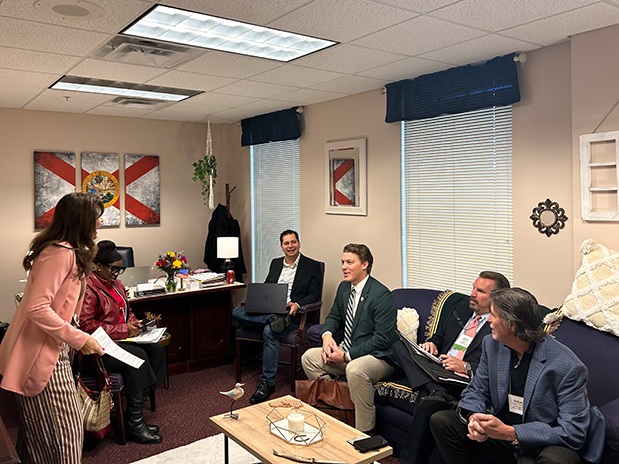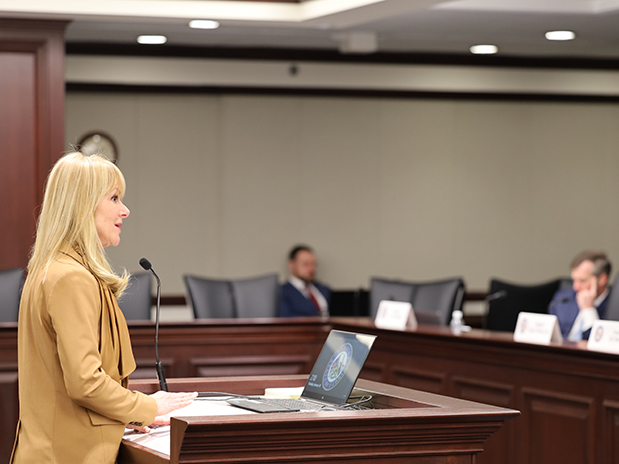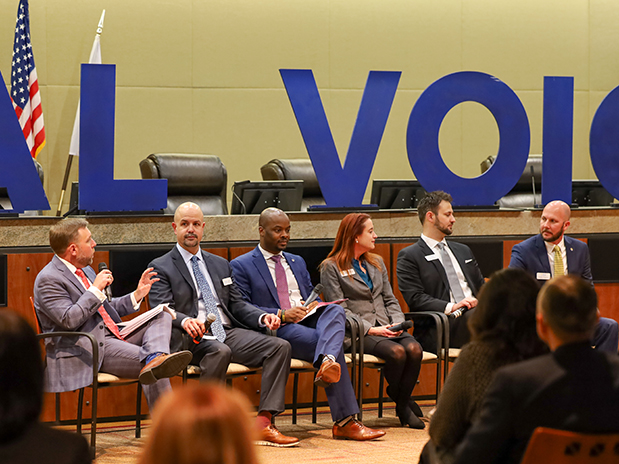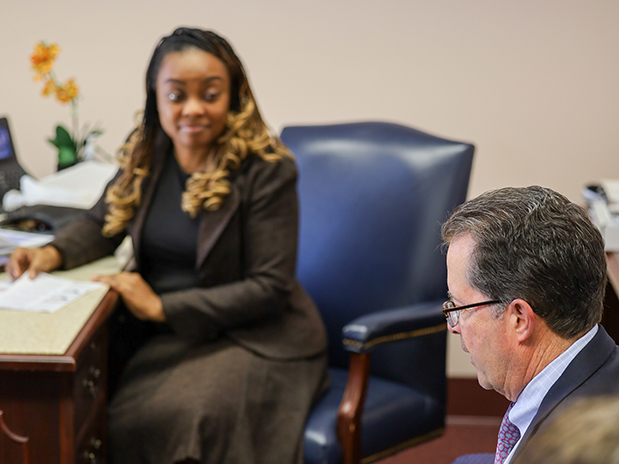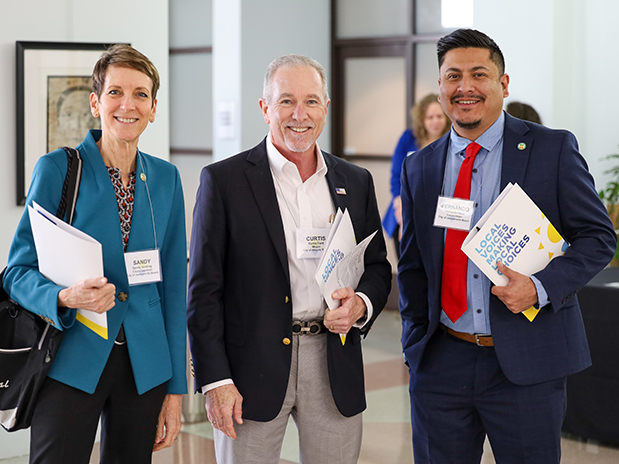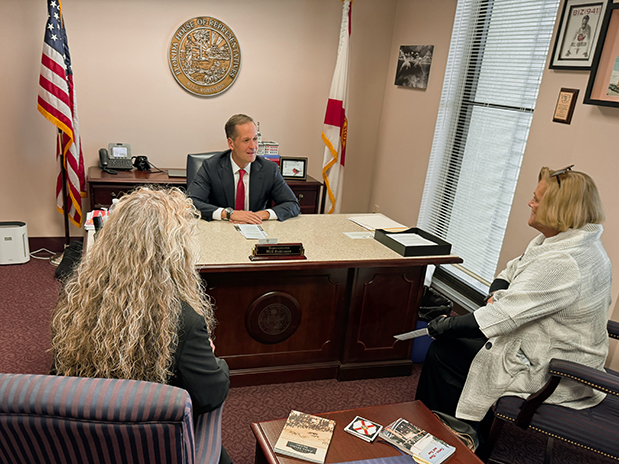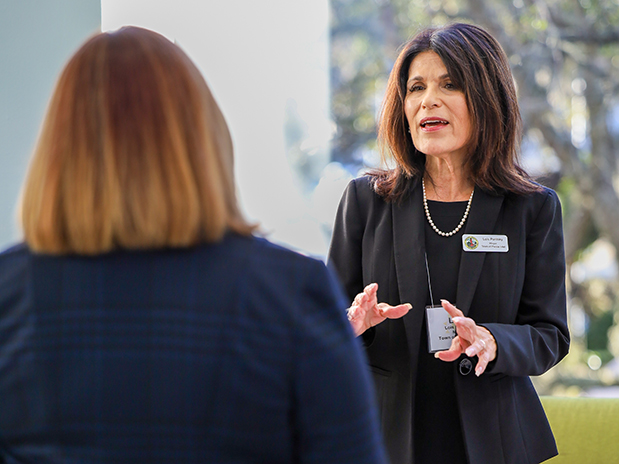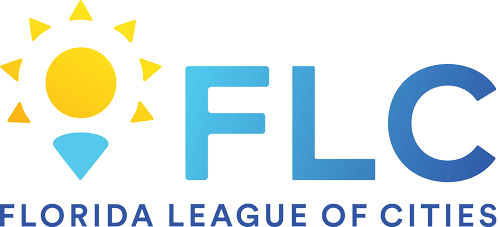By Joy Dickinson
Florida League of Cities
From the Florida League of Cities (FLC) Annual Conference through the Florida legislative session, the FLC committees work behind the scenes to strategize and advocate for cities. To provide an inside look at the committees, QC interviewed the leaders of the Municipal Administration Committee.
“The Municipal Administration Committee is the largest committee with about 100 members, which is a testament to the importance of Home Rule and the passion of local leaders to stay in front of those critical issues impacting our communities,” said Committee Chair NanDrycka King Albert, Councilwoman for the City of Midway.
The Committee’s work began in September when they discussed the policy development process and potential priorities for the upcoming legislative session, including law enforcement recruitment. The issue was discussed at length at a second meeting in October.
King Albert said, “Being a small municipality, we have a challenge recruiting officers.” Sheriff’s departments received ongoing funding, she said, but this funding initially wasn’t allocated for municipalities. Sheriff’s departments had money for incentives and sign-on bonuses, which impacted whether cities could retain and recruit their own officers. “Our ability to be competitive is truly our challenge,” she said. Even larger municipalities found this issue to be a difficult one, King Albert said.
The issue includes recruitment and retention of first responders beyond law enforcement, said Committee Vice Chair Sandy Golding, Vice Mayor for the City of Jacksonville Beach. “It’s not just about pay,” Golding said. “Benefits, incentives, training requirements and access to housing are all factors impacting the shortage of first responders our communities are facing.”
The FLC held its annual Legislative Conference in November. This conference was an opportunity for city leaders to rally in support of the League’s Legislative Platform. City leaders discussed important issues, adopted legislative priorities and shared strategies for collaborating with state legislators.
The FLC Committees also met. The Municipal Administration Committee decided to make public safety recruitment and retention its priority issue and to make short-term rentals its policy position.
The issue includes recruitment and retention of first responders beyond law enforcement, said Committee Vice Chair Sandy Golding, Vice Mayor for the City of Jacksonville Beach. “It’s not just about pay,” Golding said. “Benefits, incentives, training requirements and access to housing are all factors impacting the shortage of first responders our communities are facing.”
The FLC held its annual Legislative Conference in November. This conference was an opportunity for city leaders to rally in support of the League’s Legislative Platform. City leaders discussed important issues, adopted legislative priorities and shared strategies for collaborating with state legislators.
The FLC Committees also met. The Municipal Administration Committee decided to make public safety recruitment and retention its priority issue and to make short-term rentals its policy position.
Public safety is an important piece of the vacation rental issue, Golding said. “The two go hand in hand.” Residents who have short-term rentals in their neighborhoods often report loud and late parties, parking issues, trash and other problems that require the intervention of public safety.
“I’m sharing these stories with our legislators about how short-term rentals are impacting our community,” she reported. Golding told state lawmakers that property rights also apply to people who live in neighborhoods with short-term rentals. “They have a right to have a good quality of life,” she said.
The FLC held Legislative Action Days in January. City officials from around the state came to Tallahassee to meet with legislators and attend and testify at legislative committee meetings.
King Albert had prepared by participating in the Monday call-ins with the FLC staff. City officials scheduled appointments with legislators ahead of time, and members of her local group used a “tag team” approach to cover the priority bills listed on a card provided by the League. State lawmakers were receptive, King Albert reported.
Golding met with legislators along with members of the Jacksonville Beach City Council. “We were able to discuss our concerns with these bills and share personal stories and examples from our community to help our legislators better understand the problems we are having and how these bills are not addressing those problems,” Golding said. The legislators and their aides asked good questions, she said. “We also had several legislators tell us they appreciated the information so they could better understand our concerns.”
The meetings help state lawmakers advocate for improvements to legislation that address city concerns, Golding said. It also opens the lines of communication. Golding left her city business card with the staff and encouraged the legislators and their staffs to reach out with questions.
The Committee’s work was successful. The final budget passed by the Legislature included $17 million for continuing the Law Enforcement Recruitment Bonus Program that allows $5,000 bonuses to newly recruited officers. This is the third year in a row that cities have successfully obtained funding for the program. However, not every bill supported by every committee had the same outcome. Sometimes, despite hard work by committees and their members, bad legislation may still pass.
Despite not reaching the desired outcome on every advocacy effort, the 2024 committee leaders look favorably at what they accomplished. Golding points out that her Committee was able to identify and share information about important issues because of “respectful sharing and listening to the various sides on each issue.”
“Our committee members are very engaged and willing to do the work necessary to study each issue,” she added.
Joy Dickinson is a Senior Editor at the Florida League of Cities.

